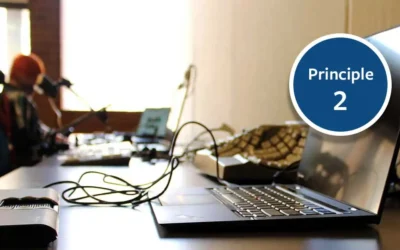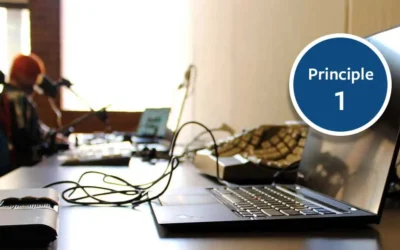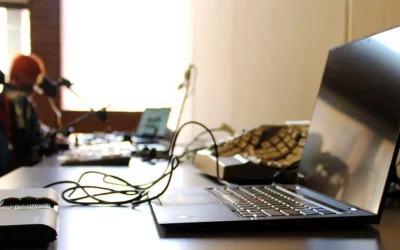Where are the Best Places to Find Museum Grants? Part 1

Rachael Cristine Woody
If you’re just starting out with museum grants, you likely don’t know who the grant funders are at the local or national levels, nor where to go to in order to successfully find the right grant for you. In this post I’ll share with you my six go-to places to search for museum grants.
As your time and experience with grants grows, you’ll be able to decrease the number of places you look to for grants. For now, I recommend you try all six in order to become familiar with all the grant opportunities available to you and where you can find them.
At-a-Glance, The Top Six Places to Find Museum Grants
- The State Historic Preservation Office
- Past Grant History for You and Your Peers
- Conference Booths and Exhibit Halls
- Federal and National Funding
- Search Engines
- Databases
This week we’ll review the first three best places to find museum grants and wrap up next week with the final three.
1. Try Your Local State Historic Preservation Office
Each state in the US has a State Historic Preservation Office or SHPO. SHPOs are agencies that receive and distribute federal funding to museums, historical societies, and cultural heritage organizations; in addition to grant programs, they may operate with state funds. For example, Oregon (US) has the Oregon Heritage Commission (OHC). The OHC operates as the state’s SHPO and will run or be aware of all of the relevant local grant programs. Each state, US territory, or Canadian province will have an office that provides a similar function. Find out who your local heritage/history/preservation offices are and what programs, training, and grants they offer. Their job is to help and support you—and if they don’t have the right resource, they should be able to point you to others.
2. Look at Past Grant History for You and Your Peers
Any grants that you or your peers have won at their museums are great options to consider for your future grant applications. Pay attention to sponsorship notes, plaques, annual reports, and other places reporting grant funding will appear for any given museum. If it’s not immediately obvious, I encourage you to connect with staff at your museum and peer museums to ask them about their previous grant history. As many grants don’t allow for repeated (in consecutive years) application, competition should be less of an issue barring others from sharing their information. Remember: If their funding was with State or Federal dollars then those grant awards are deemed to be public knowledge.
3. Pay Attention at Conference Booths and Exhibit Halls
Local and national conferences and exhibit booths will usually have a gathering place where vendors and granting agencies can meet and speak with attendees. This is a great place to check out to receive up-to-date information and have the opportunity to get face time with a funder.
Remember: If a granting agency has paid for their staff to be at that conference, it’s because that granting agency thinks that you and your peers are great candidates to apply for their grant. Finally, both private and public funding agencies also offer webinars and workshops (virtual and in-person) in order to assist museum staff with the application process and ensure competitive grant applications.
Part 2
In part 2, we’ll review the final three of six best places to find museum grants, discuss whether paid databases are worth it, and offer additional readings on the subject.
Learn more, continue to part 2 here: “Where are the Best Places to Find Museum Grants? Part 2”

Rachael Cristine Woody
Expert Rachael Cristine Woody advises on museum strategies, collections management, digital museums, and grant writing for a wide variety of clients. Learn about Lucidea’s Argus Museum CMS for virtual, multimedia presentation of collections, visitor engagement, and museum staff productivity and impact.
Never miss another post. Subscribe today!
Similar Posts
Museum Collections Online with Accessibility Principle 2: Operable
Compliance with WCAG Version 2.1 Principle 2: Operable
Museum Collections Online with Accessibility Principle 1: Perceivable
Compliance with WCAG Version 2.1 Principle 1: Perceivable, affecting information published from museum CMS to an online portal; expert guidance
Accessibility Standards for Museum Collections Online
A museum’s compliance with the ADA Title II 2024 update has benefits for its online content and for the museum’s community of users.
Museum TrendsWatch 2024: Digital Twins and Doom Loops & Combatting the Loneliness Crisis
Digital Twins is the construction of a digital surrogate for a person, place, or thing—one of several new concepts and trends in the museum sector.




Leave a Comment
Comments are reviewed and must adhere to our comments policy.
0 Comments